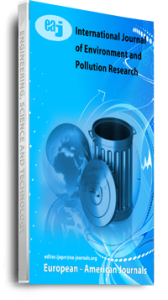In Nigeria, 34% and 44% of households do not have access to improved drinking water sources and sanitation facility. Cross River State recorded that 46.4% and 42.1% are still using unimproved source of drinking water and sanitation facilities respectively, leaving about 100 million people without access to improved sanitation. The aim of this study was to assess Water Supply, Sanitation and Hygiene (WASH) practices among households in Akpabuyo Local Government Area, Cross River State, Nigeria. A descriptive cross-sectional study was adopted for the study. Data were generated using a semi-structured questionnaire from 400 respondents which were selected using multi-stage sampling technique. An observational checklist was used to conduct an assessment of the availability, functionality and use of WASH facilities. Data generated were synthesized, entered and analyzed using Statistical Package for Social Sciences (SPSS Version 24.0) and results were presented in simple percentages, tables and charts. The result obtained in this study showed that 172 (43.0%) households have access to improved drinking water source and borehole with hand pump was the main source of water supply for households. Type of toilet facilities use in households were mainly; pit latrine 190 (47.5%) and swat flush 85 (21.2%). Method of household solid waste disposal were mainly; open dumpsite 166 (41.5%), burning 101 (25.3%) and throwing into the bush 81 (20.3%). Most respondents 386 (96.5%) practice hand washing mostly after eating, 318 (79.5%) before eating and 284 (71.0%) after handling children’s faeces. It was also observed that 357 (89.2%) houses had no drainage system, 313 (78.3%) have waste storage facility, 325 (81.3%) have refuse dumpsite and 358 (89.5%) did not have odour of excreta in the surrounding. It is therefore recommended that rural communities should synergize with government at all levels and other relevant stakeholders to ensure adequate provision of WASH facilities in their communities to improve accessibility and use.
Keywords: Water, hand washing, households, hygiene practice, sanitation

